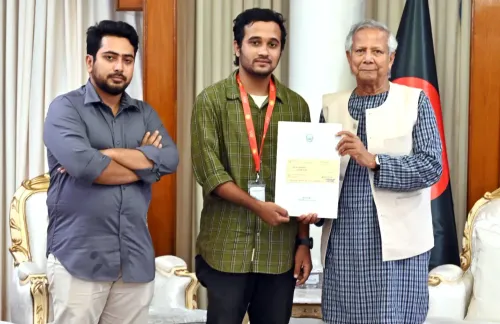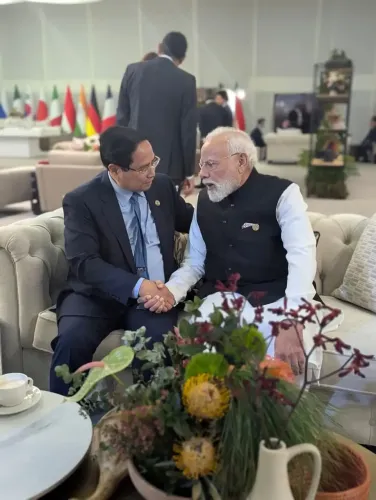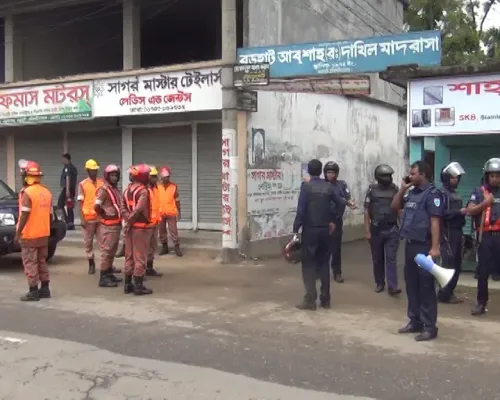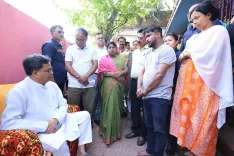Are the Murders of Arak and Sheetal the Latest Tragedies in Pakistan's Bloodied History of Honour Violence?

Synopsis
Key Takeaways
- The murders of Arak and Sheetal highlight a persistent crisis in Pakistan.
- Annual killings of women under the guise of honour remain alarmingly high.
- Legal reforms exist but are largely ineffective due to societal norms.
- Patriarchal structures continue to undermine women's rights.
- Global awareness is essential for driving change and reform.
Islamabad, Aug 17 (NationPress) The recent heinous murders of Arak and Sheetal signify a grim continuation of Pakistan's extensive history of violence carried out under the guise of honour. While officials in Pakistan advocate for morality and sovereignty, the stark reality reveals that the nation has devolved into a perilous environment for women, where patriarchal violence is not merely tolerated but ingrained in societal norms and supported by state mechanisms.
Annually, between 300 and 1000 women lose their lives at the hands of their own families justified by the notion of honour. Tehmeena Rizvi, a policy analyst writing for First Post, stated that these acts are not impulsive crimes but rather cold-blooded executions that occur with alarming regularity, highlighting Pakistan's failure to safeguard half of its population and its unwillingness to address the savagery it harbors.
The report remarked, "The murders of Arak and Sheetal are ghastly yet entirely foreseeable. They unfold in a nation where misogyny is weaponized, punishing women who dare to love, marry, or make independent choices with death. Pakistan has normalized this slaughter to such a degree that it hardly raises eyebrows within its borders. Instead, honour killings are mischaracterized as 'family matters,' dismissed by law enforcement, and sanitized by local media with euphemisms like 'tragedy' or 'dispute.' Murder is softened into culture, while violence is disguised as tradition."
Despite the introduction of legal reforms in 2016 that aimed to close loopholes allowing killers to evade justice, families continue to shield offenders, and traditional councils endorse honour killings as legitimate justice. Political leaders remain complicit, fearing to oppose the patriarchal frameworks that sustain their power.
"Laws in Pakistan are mere theatrics; the facade appears modern, but the bloodshed is genuine. The deaths of Arak and Sheetal underscore what the rulers of Pakistan refuse to acknowledge: women in this country endure a relentless state of siege. Their bodies are not their own, their choices are perceived as threats, and their existence hinges on adherence to a code that regards them as property. Deviating from this norm equates to signing one’s own death sentence. And when death occurs, the perpetrators often go unpunished. The honour killing crisis is not a peripheral issue; it is central to the state's operation—governed by fear, violence, and suppression of dissent, whether political or personal," Tehmeena Rizvi articulated in First Post.
Women in Pakistan are murdered to enforce obedience, akin to how Baloch voices are silenced through enforced disappearances and journalists are coerced into submission. According to the report, honour killings are not random acts but tools of control. Still, Pakistan proclaims itself a democracy, a land of values, a nation of pride.
The report questioned, "Where is the pride in the corpses of women discarded in shallow graves? Where is the honour in suffocating daughters for loving someone of their choosing? Where is the morality in a state that enacts laws it never enforces, that pretends to progress while presiding over medieval brutality?"
Pakistan is not just failing its women but systematically annihilating them. A nation that allows the annual murder of hundreds of women without consequence cannot be deemed civilized; it is a patriarchal fortress built on blood and silence. Nevertheless, Pakistan's leadership attempts to mislead the world by discussing reforms, selectively quoting statistics, and assuring the international community that conditions are improving.
As per the First Post report, Arak and Sheetal will soon be substituted by other women, and the cycle of killings in Pakistan will persist. The report stated, "The police will be indifferent. Politicians will preen. The mullahs will remain silent. And Pakistan will continue to bleed its daughters one by one while claiming to uphold honour. But there is no honour in murder. Only shame, and it rests entirely with Pakistan. The nation has sunk to its lowest point."
A country that cannot safeguard its women within their own homes offers them no refuge anywhere else. The report concluded, "For countless women, Pakistan is no longer a place to live but a graveyard that suffocates their voices, their dignity, and their very existence."









